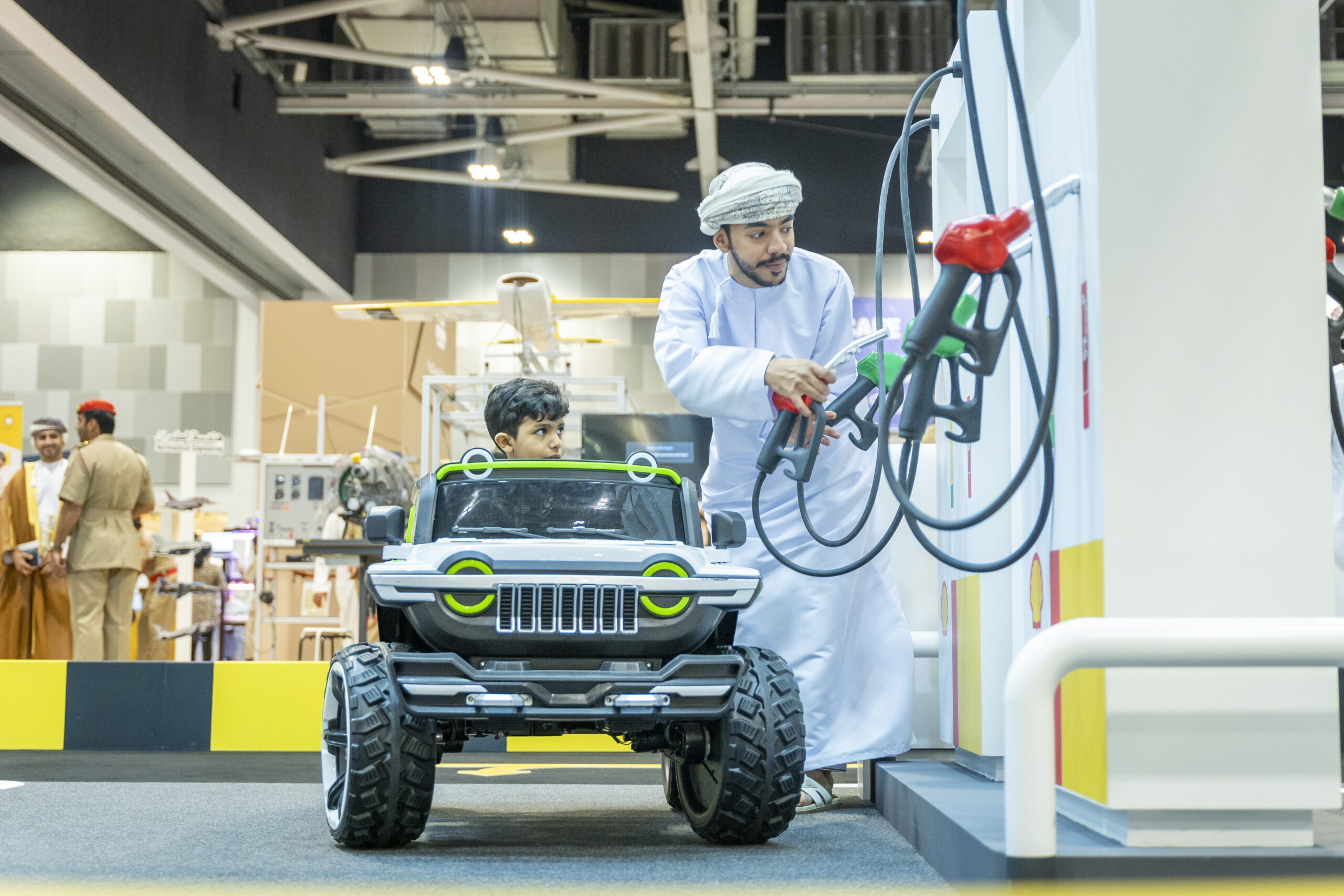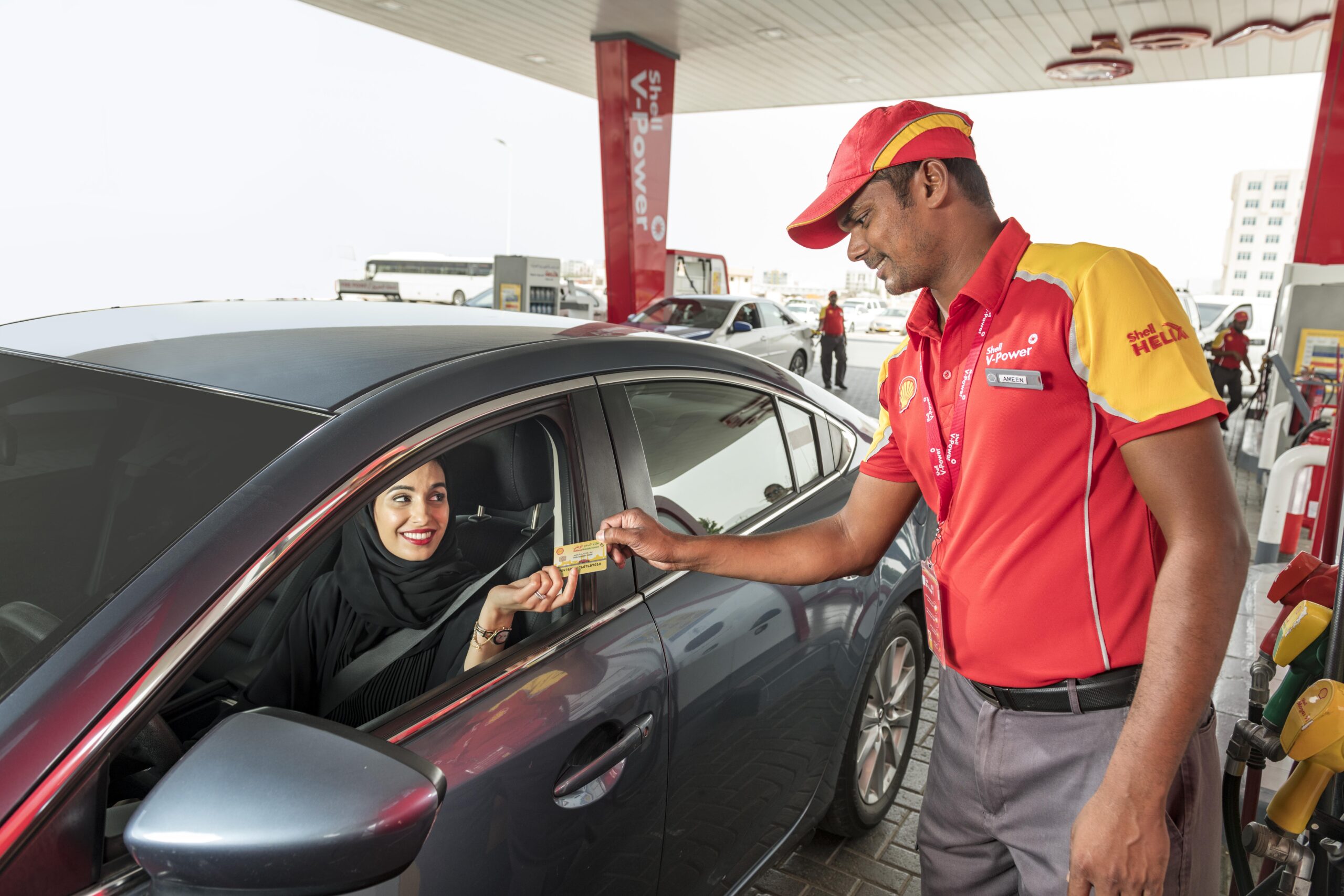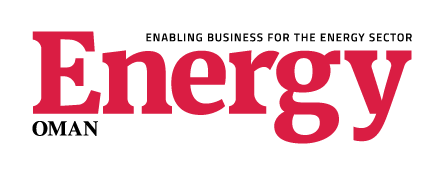
Oman Shell:
Powering Oman’s Net-Zero
Transition Goal
With a comprehensive sustainability agenda and a strong energy transition strategy as well as a committed target of net-zero emissions by 2050 in line with the society, Oman Shell’s sustainable business is leading the energy transition journey and engagements on renewables with relevant stakeholders.
As the world progresses boldly towards the larger goal of making energy more sustainable, available, affordable, and cleaner, local companies are altering their business narratives to fit the title. His Majesty Sultan Haitham bin Tarik in a recent meeting of the Council of Ministers at Al Barakah Palace reviewed domestic, regional, and international developments to this effect. As part of Royal attention to improve environmental performance and alleviate the impact of climate change, the year 2050 has been set as a date for net zero carbon emissions in the Sultanate of Oman. A national plan has been drafted to achieve this goal, along with the setting up of Oman Sustainability Centre to undertake the supervision and follow up of zero carbon emission plans and initiatives.
In line with Oman’s Net Zero objective, Oman Shell is setting a strong example in the country, steering its developmental axis towards the target of net zero emissions by 2050.
With local authorities incorporating sustainability measures into policies and plans of national interest, the responsibility is on every sector, most importantly energy, to develop and execute strategies that have the interests of the nation, the region, and the world at large. On its part, Oman Shell has and continues to be an active player in the country’s energy spectrum. It is working towards delivering more renewable and low-carbon energy options for customers through investments in wind, solar, electric vehicle charging, and hydrogen.
Sustainability at Shell
At Shell, the values of sustainability span through all of its business operations. While the need to provide essential energy to power homes and fuel transport for an ever-growing population with a rising standard of living is essential, Shell strives to meet this demand by deriving energy from lower-carbon sources through constant innovation and advancement in technology. Processes and procedures are devised to minimise adverse environmental and social impacts while respecting the interest and safety of the communities.
Shell’s three-layered approach to sustainability begins with a keen focus on safety, efficiency, and responsibility as the three fundamental pillars to run an ethical and profitable business. The organisation adheres to the highest global standards of environmental consciousness and community involvement as well as ethics and compliance. With its operations being planned for the long run, Shell believes that it is imperative to play a role as responsible members of the community. This is done by contributing to the development of local economies whether it is by creating jobs, sourcing from local suppliers, or paying taxes and royalties. Home-grown projects that provide sustainable benefits to the local communities and are in alignment with Shell’s line of business are duly encouraged.
By focusing on cleaner energy sources, reducing emissions, and increasing energy efficiency, Oman Shell will continue to advocate the importance of creating a more sustainable energy future.
Energy Transition and Decarbonization
The challenge of transitioning to a low-carbon energy future to combat climate change risks, while meeting the growing demand for energy and extending access to life-changing, reliable energy to everyone on the planet is daunting. The onus is on how oil and gas companies operate their businesses to meet the target, which is why Oman Shell has accelerated its transition drive and leveraged its decarbonisation program to become a partner of choice for electric mobility in Oman. A case in point is the Memorandum of Understanding with Oman Airports Management Company signed earlier this year, to provide 15 hydrogen cars for the Oman Airports’ corporate usage, which will entail development of hydrogen production units that will be powered by photovoltaic solar plants, installed at fuelling units related to the project. This is commensurate with Oman’s concerted efforts to build a hydrogen-centric economy, with an annual production of green and blue hydrogen of around 30GW by 2040. On the anvil are several green hydrogen projects, including a 14GW facility powered by 25GW of wind and solar energy.
Government regulations, rightly, play a vital role in accelerating energy transition, as set out in Oman’s Vision 2040, explicitly addressing the need to move beyond hydrocarbons and decarbonise the energy sector. This plan resonates with the global shift to cleaner energy solutions to power the world, while significantly reducing carbon emissions. Shell’s global experience, technological capability, operational experience and market expertise has enabled it to be at the leading edge of this transition and meet its customers’ evolving energy needs.
Today, customers are seeking bolder paths towards decarbonisation through innovative, cleaner and reliable energy solutions to drive their growth and achieve their sustainability goals. Shell is committed to helping them navigate the complex energy environment by designing innovative energy solutions for their businesses. It is developing and investing in new technologies to decarbonise its energy system.
The future of mobility in Oman is about creating diverse choices that increase customer convenience. As a leading player committed to contribute to the energy transition journey and support Oman’s Carbon Control Target Plan, Oman Shell is working with its partners and key stakeholders to create innovative mobility solutions with enhanced efficiency. This will directly contribute to the country’s sustainability goals and help the company drive towards a lower-carbon future.
Carbon Neutral Lubricants
Of particular significance to this goal is its recent introduction of a range of carbon neutral lubricants across its Helix Ultra brand (0W viscosity grade) for passenger cars. Shell has announced that its recently launched portfolio of carbon neutral lubricants is now available for customers in Oman.
As per the set target, the global lubricant company expects to offset annual emissions of more than 200 million litres of advanced synthetic lubricants, thereby compensating around 700,000 tonnes of carbon dioxide equivalent emissions per year - which is comparable to taking as many as 340,000 cars off the road, for one year. This goal of global significance will have Shell Lubricants play a critical role in not just supporting the company’s larger objective of net-zero emissions, but also aiding customers in doing their part to reduce carbon footprints.
Oman Shell owns and operates Oman’s only ISO certified lubricants blending plant, which generates in-country value by producing made-in-Oman Shell lubricants. These lubricants not only meet the local demand, but they are also exported to countries in the Middle East, South Asia and Africa. Besides, as part of its ICV and HSSE framework, it had previously moved its base-oil storage facility to Sohar Port, thus enhancing its contribution to sustainable development by supporting SMEs and, successively, helping create more in-country value.
Moreover, with the launch of its first solar-powered Service Station in Oman, Shell Mukhaizna Service Station, more than 5 years ago, the company has been demonstrating its leadership and commitment to more and cleaner energy solutions for Oman.
EV Charging Stations
While the success of electric vehicle charging stations is dependent primarily on customers, the responsibility of making it a conveniently available option lies on energy businesses. Towards this end, Shell has taken a bold stance to incorporate EV charging stations into its growth strategy, making travel choices more exciting, with efficient internal combustion engines.
Efficient and effective electric vehicles are the main catalysts in global energy transition, however, the possibility of utilizing 100 percent sustainable fuels has set in motion the need for critical investments towards energy solutions. Shell has been producing very high-quality differentiated fuels, most importantly high-end fuel for the Ferrari 1 Formula team, which is a second-generation biofuel. It is produced from the leaves of the non-edible parts of leftover sugarcane. Shell has a huge ethanol company in Brazil and this will help it achieve the target of producing 100 per cent sustainable fuels – a combination of different bio fuels and synthetic fuels - for Ferrari by 2026. While this will provide consumers with an alternative fuel option, it will open newer avenues to produce energy efficient cars.
Oman Shell has initiated the process of reducing emissions from its operations, including the production of oil and gas by increasing energy efficiency, as well as by capturing/offsetting any remaining emissions. At present, emissions from its operations make up less than 10 per cent of its total emissions. But what sets the benchmark for excellence is its goal of including emissions not only from the energy it produces and processes itself, but also from all the energy products that others generate and sell to its customers. Oman Shell will continue to drive innovation to provide the cleaner energy that its customers need.
Powering Progress
Oman Shell’s sustainable business success has endowed its clients and partners with cutting-edge technology, reach and technical experience. It continues to provide pioneering technologies and expertise in the business of energy, ensuring an added value for the community. The organisation’s values are not just aligned to Oman Vision 2040, but it contributes to and is in service of the vision. Oman Shell has undertaken various social investment initiatives that span from environmental conservation to the development of the youth workforce. It is dedicated to supporting economic development in Oman while remaining committed to sustainable development and making a lasting difference in society.
By partnering with the Ministry of Energy and Minerals, Oman Shell believes in powering progress through providing more and cleaner energy. Shell also aims to reduce the carbon intensity of its portfolio globally and in Oman by improving energy efficiency. While access to clean energy has always been a goal, it ensures that it is safe, reliable, and affordable for all.
An active contributor to economic growth, Oman Shell offers direct employment opportunities through its supply chain activities. They also work with governments and partners to help create jobs while supporting the development of local businesses or suppliers. Through Oman Shell’s Intilaaqah programmes, it has offered additional training to improve the level of skills and technical know-how of business owners.
Oman Shell will continue to remain invested in community health and the promotion of educational initiatives reaffirming its belief that these form the backbone of any country.
In a nutshell, Powering Progress is Shell's strategy to accelerate the transition of its business to net-zero emissions. Designed to create value for the giant’s shareholders, customers and wider society, it has four main goals: achieving net-zero emissions, powering lives, respecting nature and generating shareholder value.
To conclude, its essential to note that as the world navigates an era of transition in the way business is carried out in terms of deals, marketplace, supply and demand, it requires everyone to be ahead in the energy transition journey addressing the different challenges and capitalizing on the opportunities. Oman Shell has already started deploying resources, expertise, and best practices to meet the Sultanate’s growing energy demands in an economically, environmentally, and socially responsible way, while creating sustainable benefits for the society. Through its fuel, and lubricants business Oman Shell has worked on commercial and technical advancements to enhance mobility in Oman, helping the growth of various industries that have underpinned the country's economic development.

- December 12, 2022
- ENERGY OMAN MAGAZINE
[Sassy_Social_Share title="Share Post" ]
